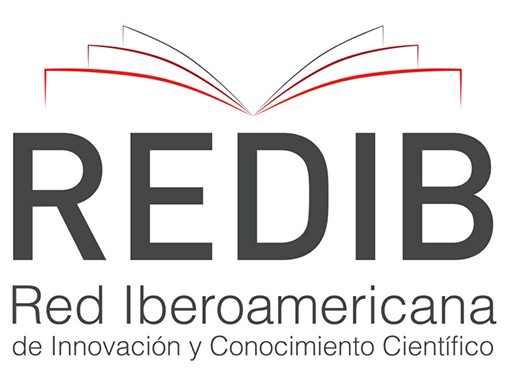Formation of multiplier educators for surveillance and zoonoses prevention in a medium city in brazil: from the analysis of health needs to the practical application of results
Keywords:
health education, zoonoses, public health surveillanceAbstract
The susceptibility of children to zoonoses highlights the importance of health education
actions for them. In order to promote a differentiated experience to prevent such diseases, a
partnership was established between the Departments of Health and Education of Resende
municipality, Rio de Janeiro state. A research of regional thematic health needs was done
through the analysis of data provided by the Ministry of Health and by the State Health
Department and a course was prepared and made available to public school educators who
spontaneously showed great participation and interest. The subjects selected to the approach
were the responsible pet animal guardianship and the following zoonoses: rabies, visceral
leishmaniasis, leptospirosis, the Brazilian spotted fever, Lyme disease and dengue. Booklets
for children and youth were prepared as background material for the work of the trained
teachers. During the experience, the participants were able to learn and discuss the proposed
themes, answer their questions and demystify health information. Therefore, we present a
positive experience with regard to education activities and prevention of zoonoses within the
Brazilian Unified Health System in this municipality.
References
Pan American Health Organization. Zoonosis and communicable diseases common to man and animals. 3rd ed. Washington, D.C.: PAHO; 2001.
Sánchez-Ortiz IA, Leite MA. Zoonosis transmission risk factors according to population habits in Ilha Solteira city, Brazil. Rev Salud Publica. 2011; 13 (3): 504-13.
Gonçalves FD, Catrib AMF, Vieira NFC, Vieira LJES. Health promotion in primary school. Interface (Botucatu). 2008; 12 (24): 181-92.
Ministério da Educação. Secretaria de Educação Fundamental. Parâmetros curriculares nacionais: meio ambiente, saúde. Brasília, DF: SEF; 1997.
Marcondes RS. Educação em saúde na escola. Rev Saúde Pública. 1972, 6 (1): 89-96.
Davanço GM, Taddei JAAC, Gaglianone, CP. Conhecimentos, atitudes e práticas de professores de ciclo básico, expostos e não expostos a curso de educação nutricional. Rev. Nutr. 2004; 17 (2): 177-84.
Ministério da Saúde. Secretaria de Vigilância em Saúde. Doenças infecciosas e parasitárias: Guia de Bolso. 8ª ed. rev. Brasília, DF: SVS; 2010.
Ministério da Saúde. Secretaria de Vigilância em Saúde. Guia de vigilância epidemiológica. 7ª ed. Brasília, DF: SVS; 2009.
Ministério da Saúde. Secretaria de Vigilância em Saúde. Sistema Nacional de Vigilância em Saúde: relatório de situação - Rio de Janeiro. 2ª ed. Brasília, DF: SVS; 2006.
Cunha NC, Fonseca AH, Rezende J, Rozental T, Favacho ARM, Barreira JD et al. First identification of natural infection of Rickettsia rickettsii in the Rhipicephalus sanguineus tick, in the State of Rio de Janeiro. Pesq Vet Bras. 2009; 29 (2): 105-8.
De Vasconcelos TCB, Alves FJ, Mendes Júnior AV, Madeira MF, Figueiredo FB. Leishmaniose visceral canina: caso alóctone no município de Resende, estado do Rio de Janeiro, Brasil. R. bras. Ci. Vet. 2013; 20 (2): 80-3.
Pimentel MIF, Alves ELM, Da Silva MHFF, Moza PG, De Almeida PMP, Cunha CS et al. High visceral leishmaniasis mortality rate in Barra Mansa, a new area of visceral leishmaniasis transmission in the State of Rio de Janeiro, Brazil. Rev Soc Bras Med Trop. 2014; 47 (4): 521-3.
Werneck GL. Expansão geográfica da leishmaniose visceral no Brasil. Cad Saude Publica. 2010; 26 (4): 644-5.
De Almeida JF, Pedro DA, Pereira VLA, Abreu DLC, Do Nascimento E.R. Educação humanitária para o bem-estar de animais de companhia. Enciclopédia Biosfera, Centro Científico Conhecer. 2014; 10 (18): 1366-1374.
Lima AMA, Alves LC, Faustino MAG, Lira NMS. Percepção sobre o conhecimento e profilaxia das zoonoses e posse responsável em pais de alunos do pré-escolar de escolas situadas na comunidade localizada no bairro de Dois Irmãos na cidade do Recife (PE). Cien Saude Colet. 2010; 15(1):1457-64.
Downloads
Published
How to Cite
Issue
Section
License

Este obra está licenciado com uma Licença Creative Commons Atribuição-NãoComercial 4.0 Internacional.











